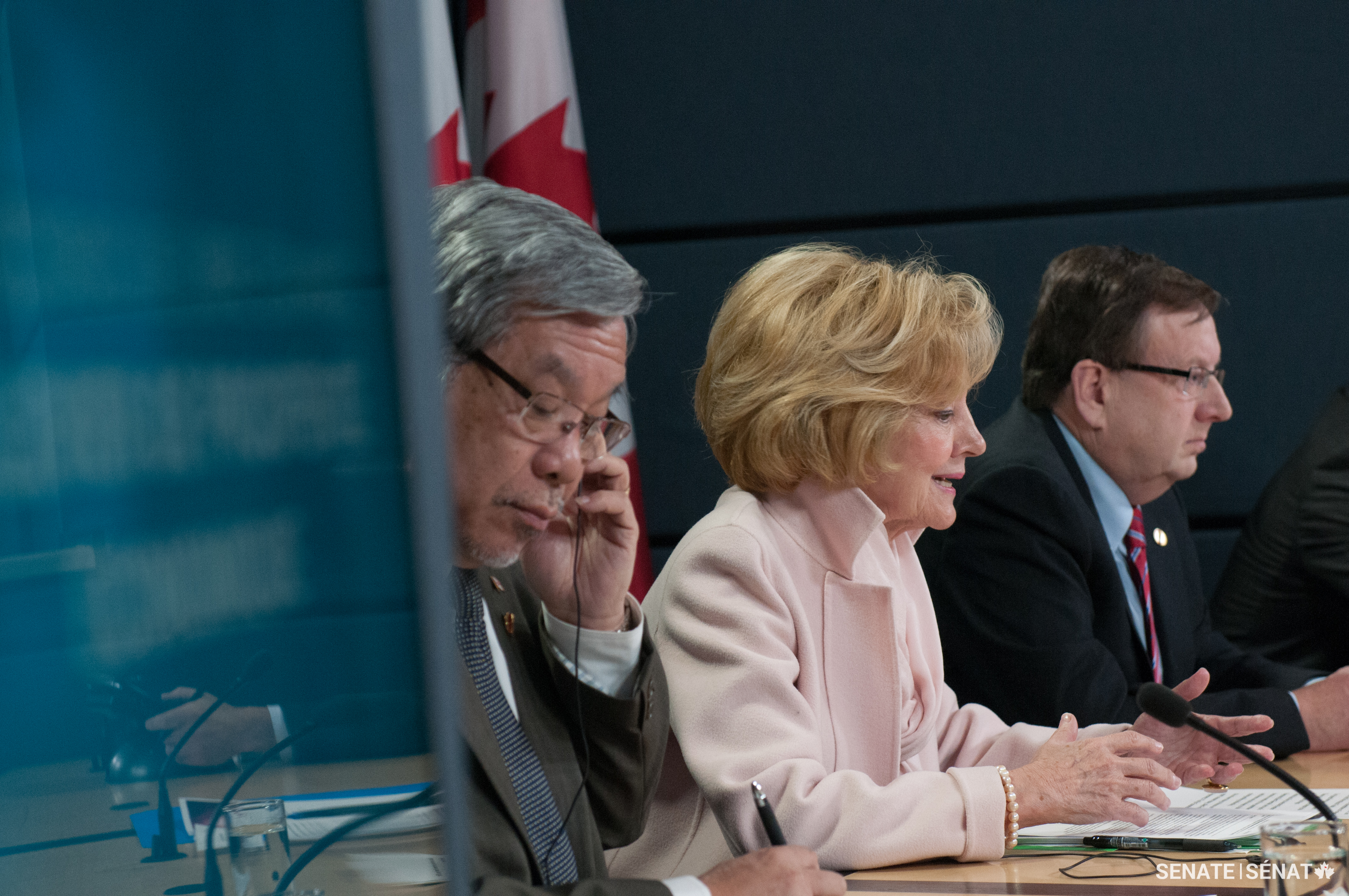Reimagining Canada’s approach to international trade

Read the ReportRead the Report HighlightsRead the News Release
The federal government should make its pursuit of international free trade agreements more transparent to the public and to parliamentarians, a Senate committee said in a report released Tuesday, February 7, 2017.
Free trade agreements remain essential to Canada’s economic well-being and they have been shown to spur innovation and efficiency. However, these agreements are not ends in themselves. A new approach that is more open to the public and that encourages greater public engagement will help negotiators to better represent Canadians’ interests.
In its report, Free Trade Agreements: A Tool for Economic Prosperity, the Senate Committee on Foreign Affairs and International Trade makes nine recommendations to increase public involvement and parliamentary oversight of these agreements and to establish standards by which the success of an agreement would be measured.
These recommendations include:
- That the federal government establish a formal consultation process before negotiations begin that would be open to all Canadians
- That the government identify -- before a trade agreement is ratified -- measures designed to help Canadians benefit from the proposed agreement and that would mitigate any potentially adverse effects.
- That the government articulate the rational for a given trade deal so that Canadians will be in a position to assess whether it has met its objectives.
- That the government make quarterly reports to the committee and to the House of Commons International Trade Committee so parliamentarians and the public alike can be properly informed.
As free trade agreements do not guarantee success for Canadian businesses in the global marketplace, the committee also recommends that the government ensure coordinated policies in relation to international and internal trade, innovation, infrastructure, education and other relevant sectors provide the economic foundation required by Canadian businesses and workers to maximize the potential benefits of these agreements.
To learn more, read the report.

Related articles
Tags
Committee news
Reimagining Canada’s approach to international trade

Read the ReportRead the Report HighlightsRead the News Release
The federal government should make its pursuit of international free trade agreements more transparent to the public and to parliamentarians, a Senate committee said in a report released Tuesday, February 7, 2017.
Free trade agreements remain essential to Canada’s economic well-being and they have been shown to spur innovation and efficiency. However, these agreements are not ends in themselves. A new approach that is more open to the public and that encourages greater public engagement will help negotiators to better represent Canadians’ interests.
In its report, Free Trade Agreements: A Tool for Economic Prosperity, the Senate Committee on Foreign Affairs and International Trade makes nine recommendations to increase public involvement and parliamentary oversight of these agreements and to establish standards by which the success of an agreement would be measured.
These recommendations include:
- That the federal government establish a formal consultation process before negotiations begin that would be open to all Canadians
- That the government identify -- before a trade agreement is ratified -- measures designed to help Canadians benefit from the proposed agreement and that would mitigate any potentially adverse effects.
- That the government articulate the rational for a given trade deal so that Canadians will be in a position to assess whether it has met its objectives.
- That the government make quarterly reports to the committee and to the House of Commons International Trade Committee so parliamentarians and the public alike can be properly informed.
As free trade agreements do not guarantee success for Canadian businesses in the global marketplace, the committee also recommends that the government ensure coordinated policies in relation to international and internal trade, innovation, infrastructure, education and other relevant sectors provide the economic foundation required by Canadian businesses and workers to maximize the potential benefits of these agreements.
To learn more, read the report.





